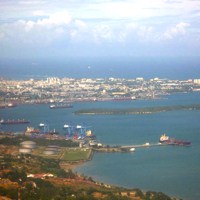When Kenyans vote in the country’s presidential, parliamentary and county elections March 4, they will have the chance to distance themselves from the traumatic elections of December 2007. More than 1,000 people were killed and approximately half a million others fled their homes when violence between rival ethnic groups and political supporters broke out in the weeks following the vote. Much has changed since then, a lot of it for the better. But the main causes of the violence remain unaddressed. The 2013 election is thus fraught with hazard, and a mood of trepidation has characterized the campaign period.
The violence of early 2008 ended when a mediation team from the African Union brought the leaders of the warring parties into a power-sharing government headed by President Mwai Kibaki, with Raila Odinga taking the hastily created post of prime minister. It was an imperfect arrangement, but some progress has been made since then. Most importantly, the new constitution passed in 2010 addresses some of the causes of Kenya’s zero-sum politics by diluting some executive authority in favor of U.S.-style separation of powers. One key feature is the devolution of important functions to 47 newly established counties, each with a governor and an assembly.
Yet while the new constitution has been broadly welcomed, implementation has been patchy. The most encouraging progress has been in the judiciary, which has been empowered by the appointment of a respected chief justice and is beginning to assert its independence. Less progress has been made in implementing constitutional provisions to reform political parties, overhaul campaign financing and improve police performance.

